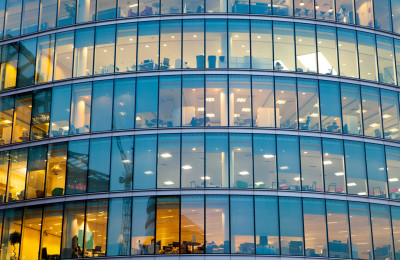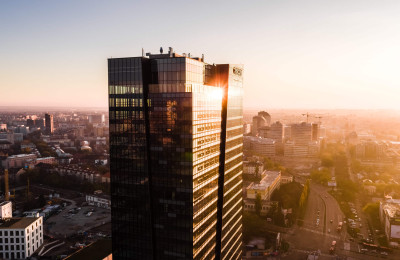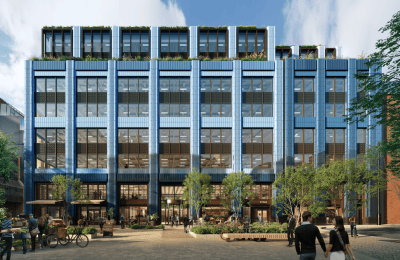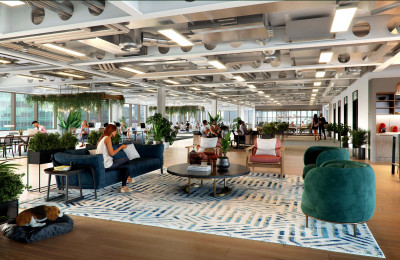How does hospitality influence the places we work? Our CEO Steven Skinner hosts a panel of experts at the Space Plus UK event
For us at HB Reavis, hospitality is not just a welcoming front desk or an after-work event. How we embed hospitality is fundamental in every project we do, from design through to fit out and the daily management of a building. So, when Steven was asked to chair a round table event with some of the world’s top firms, he jumped at the chance.
In early February Steven sat down virtually with office experts from GlaxoSmithKline, Microsoft, Spotify, Mastercard, Standard Chartered and HSBC to talk hospitality, technology and sustainability in the workplace, leading the ‘Occupeers tribe’ at the virtual Space Plus event. The panel discussed how to successfully blend real estate and hospitality, looking at how operators can curate the workplace experience.
Steven opened the session by asking ‘how do we define hospitality?’ The panel agreed their main focus is creating an atmosphere that allows people to be at their happiest and most productive, whilst fostering company culture. Ultimately, they argued this is all underpinned by wellness, inclusivity, and creating places that enable human connections.
Sheridan Perkins, from Standard Chartered, provided further insight, “hospitality is about the entertainment of guests, we need to draw people in to allow connections to occur. We are competing with 100,000 other office spaces (people’s homes) and we need to offer something that draws people away from this.”
When Steven asked how the post-pandemic office will work the panel were united: Flexibility.
Flexibility in lease agreements, in size of the office, the locations and its offer – the office of the next few years has to be able to flex with changing habits, regulations and attitudes to workspace.
Jeanie Chuo, from HSBC, expanded, “remote working will generally be accepted, so now we need to think about how different the office will need to be. It’s all about minimising disruption and thinking of those who want to work from the office, as well as at home.”
Unsurprisingly, all agreed that technology will be key to transform the way we work, playing an important role in sustainability and adapting to our individual working needs. Jessica Rentzos van Rozen from GlaxoSmithKline underlined the importance of making things easy for staff, and having the data to show what works, and what doesn’t. Jeff Schumacher, from Microsoft, echoed this and championed smart buildings technology to support increased productivity commenting, “our lives are almost completely digitised, so now we also need to look at the digitisation of our buildings to make them more efficient, and map the changes you need to make.”
However, Sonya Simmonds from Spotify said introducing technology in the workplace was a challenge for top tech brands as any solution would have to be the best possible to mirror their own level of expertise and must speak positively about their brand.
With the pace of change it was clear from the discussion that expectations amongst occupiers, and their employees, are rising rapidly. We believe workspaces can only meet this challenge through increased flexibility of lease and space, and through technology as well as traditional daily hospitality management.
This is why our Workspace as a Service brands are so important to us. Symbiosy employs the latest smart office technology that gives employees digital experiences for better wellbeing and performance in their working day. At Bloom Clerkenwell we have created a new tech-enabled Ready to Work space with flexibility at its heart whilst our Origameo workplace consultancy team will collaborate with occupiers to create the workspace that is actually needed.
To find out more about our brands – simply click on their name at the top of this website or get in touch.
To return to Steven’s original question – What is hospitality in the workplace? Whilst the panel had a range of answers from wellbeing to sustainability, and from technology to flexibility, they all agreed that hospitality in the workplace needs to be built in, right from the start.



